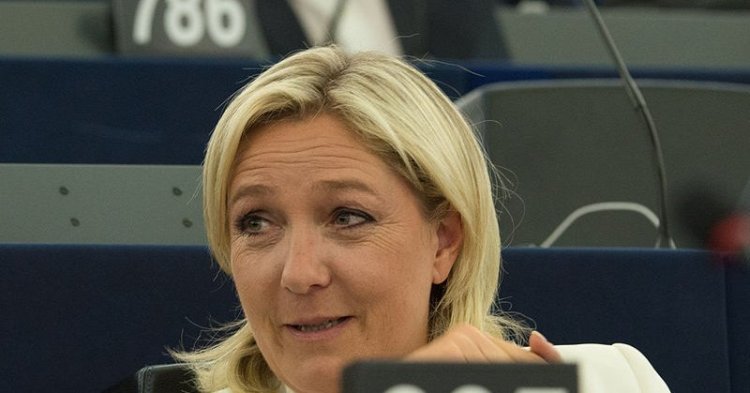The New Federalist: You assert that the media has great influence over how we view what is going on in the world. This is because it has the power to “set the agenda”, by “priming” readers, listeners and viewers and by choosing how it “frames” issues. What does the research tell us about how this occurs?
Katy Brown and Aurelien Mondon: While the media cannot influence what people think, research suggests that it can influence the types of issues people think about through agenda-setting. Therefore, while it will not tell its readers and viewers exactly what and how to think, it can shape people’s perceptions of what the most important issues are at the time. One way this happens is through priming certain topics over others by placing disproportionate emphasis on them.
For example, in the British referendum on European Union membership in 2016, research by Martin Moore and Gordon Ramsay has shown that the media focused greatly on immigration and that this coverage was overwhelmingly negative. While this may not have necessarily convinced readers that immigration is bad, it certainly would have helped put the issue at the forefront of people’s decision making, over other concerns.
Closely linked to this, the way in which different events, people or issues are framed can influence the audience’s perceptions and where their attention is drawn. For instance, in our study, we point to how The Guardian frames many phenomena around their ‘populist’ elements above other more accurate descriptions such as racist, entailing many harmful effects.
The UK’s tabloid press became infamous across Europe in the run-up to the 2016 referendum on EU membership. In stark contrast to the frequently misleading Eurosceptic headlines of the mostly corporate-owned tabloid press, The Guardian is one of the few newspapers in the UK which presents a pro-European and centre-left editorial line and its business model is dependent on advertising and donations. Why did you choose The Guardian as a focus for your study and what methods did you employ?
We thought The Guardian would make an interesting case study precisely because of its liberal, centre-left approach. Compared to the right-wing media and tabloids in particular, when covering populism and the far right, The Guardian is clearly not discussing a group or ideology it consciously supports, but this means that critical and careful reflection on this coverage is especially important. If we find that a media outlet opposed to certain views espouses a language that legitimises them, it can reveal how mainstream and normalised these views have become.
For our analysis, we focused our attention on ‘The New Populism’, a six-month investigative series launched by The Guardian in November 2018. Our study included any article containing populis* (populism, populist, populists, etc.) within the series and in the six months following. In total, we found 1548 distinct articles containing populis* and 3996 distinct uses. We combined close textual analysis of key articles with a broader examination of the use of the term across all the articles. We were interested in the ways that ‘populism’ has been used, what topics it was associated with, how it was described, who it was attributed to, etc.
...and your results?
We found that, despite some important contributions in ‘The New Populism’ series which raised critical questions about the definition and role of populism in contemporary politics, The Guardian has tended to use the concept far too loosely across the series, from serious political matters to pop music. This has muddied the meaning of the term and had a number of consequences. For instance, it has diverted attention away from the responsibility of elite actors with power to shape the agenda through their access to shaping public discourse – if populism is indeed ‘all the rage’, those who choose to put it on the front page, day in, day out, surely have some responsibility.
You speak of parties “benefitting” from the populist label, because it is used as a euphemistic, cuddlier alternative to terms closer to the core of the ideology of the far right. Which parties in Europe today self-identify as populist, and why is this term not the best way to describe their ideology?
We’ve seen a range of far-right figures openly embrace the term: Marine Le Pen of the French Front/Rassemblement National stated in 2013, ‘If it means a government of the people, by the people and for the people, well then, I am a populist’; Matteo Salvini of the Italian Lega wore a T-shirt stating ‘I am a populist’ in 2018; and Nigel Farage of UKIP and the Brexit Party claimed that populism ‘has great benefits’ in his final speech to the European Parliament.
One of the main problems with the mis- and over-use of the term is that it allows such leaders to create a link between their parties and ‘the people’, giving them an impression of greater democratic legitimacy. Another problem is that it pushes ‘populism’ above all other descriptions which may be more accurate in reflecting the ideology of the party. These may also be more stigmatising and therefore not so readily embraced by these political actors. For instance, clearly racist acts are not labelled as such, but are instead described as populist.
What should we say instead, knowing that “far right” parties’ programmes and ideologies can vary? There is a vast variety of terminology even in political science literature (extreme right, radical right, populist right, national populist, anti-immigrant, nativist – the list goes on). And, now that we know what populism is not, what is it?
We are advocating for clear and precise use of terminology which does not shy away from taking a clear stand. For instance, one article in our analysis refers to Boris Johnson as a ‘burqa-bashing populist’ in relation to his comparison of Muslim women with letterboxes. Here, instead of denouncing the clear racism in his statement, it is euphemised through ‘populist’, and we see this replicated in many examples of Islamophobia in the texts.
Taking a discursive definition of populism, it refers to a political logic which depicts antagonism between ‘the people’ and an elite. If we refer to something as populist, this antagonism must be the principal factor at play. It is crucial here to note that this is always a construction, rather than a reality, and that ‘the people’ and elite can be articulated in many different ways depending on the core ideology of the movement in question.
This is why we, along with other academics, stress that no party, movement or political actor should simply be called ‘populist’, as it tells us very little about their politics, and simply about the way they construct their narrative. Therefore, ‘populist’ should always only be used as a qualifier to proper ideologies so that we do not create false equivalences between say socialist and far-right politics as this would not help us illuminate the current context. Taking this approach also prevents the legitimisation of politics through an uncritical link to the people.
In your paper you allude not only to the quality of the coverage of so-called “populist” issues, but also the quantity and the type of story selected. For example, you highlight how there was a “hype” around the potential of the far-right Swedish democrats to gain power, but little news of their failure to do so. What is problematic about the fact that the prospect of far right success generates news stories, while the failure of the far right does not?
It is problematic as it amplifies their popularity, minimises their lack of success and thereby leaves a lasting narrative of upsurge. This does not mean we should not be wary of growing electoral success, but reporting so heavily on these parties and actors gives them a bigger platform and greater legitimacy. There is also a tendency to present the far right as the alternative to a much derided ‘establishment’ or ‘elite’ and this type of coverage fails to engage with the way in which the far right has often very similar and elite interests, and that neither the mainstream nor the far right is prepared to challenge certain systemic inequalities such as racism.
For me, one of the key take-away messages from your paper is journalists and editors have a great moral and professional responsibility to use precise, accurate terminology to describe the concepts under study. Do you agree with this, and how and what can journalists learn from political scientists? Is there anything that could be done to encourage the use of accurate terms in the media?
Yes, this is key. With the importance of priming and framing, it is critical for journalists to engage with these kinds of issues and use precise terminology which is well-defined and employed carefully. This problem is not limited to journalism and indeed, within political science, the use of populism to describe a vast array of phenomena has also proliferated. So, our call is more generally for people writing about these issues to be conscious in their choices and reflect carefully and critically. The ability to have an impact on public discourse, whether as journalist or academic, comes with a responsibility and this cannot be shied away from.


Follow the comments: |
|
